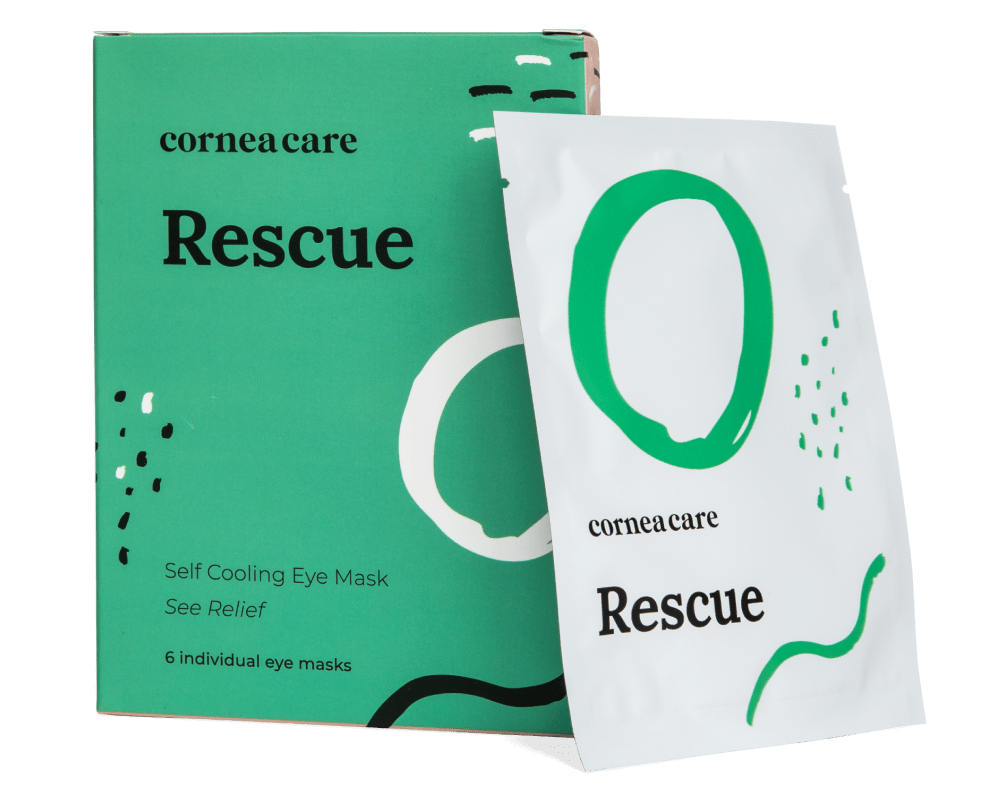Are Eye Floaters Dangerous?
Your eyes are among your most precious assets, allowing you to see and experience the world around you. Therefore, it’s only natural to be concerned when something unusual happens in your field of vision. Eye floaters, those squiggly lines and spots that move as your eyes move, are very common. Yet, some may worry whether eye floaters can be dangerous.
Most people experience eye floaters, especially after the age of 50, so it’s worth understanding their causes, risks, and treatments. Keep reading for expert insights into eye floaters. Find out if floaters in the eye are dangerous, what causes them, and what you can do about them.
Key Points
- Floaters in the eye are harmless spots and squiggly lines in your field of vision, but sudden or significant changes may signal a serious eye condition.
- Age-related changes in the vitreous humor are the primary cause of eye floaters.
- Treatment options include observation, and in rare cases, vitrectomy or laser therapy, though the risks usually outweigh the benefits.
What are Eye Floaters?
Eye floaters are small specks, shapes, or cobweb-like objects that appear to float around in your field of vision. They may appear as gray or dark spots, squiggly lines, or even transparent threads. Floaters can be more noticeable when looking at a plain background, such as a blue sky or a white wall.1
Known medically as myodesopsias, eye floaters are a common occurrence. Occasionally, these visual disturbances may coincide with the perception of flashes of light, known as photopsias. Floaters and flashes can occur independently or in tandem.1
Though these spots and squiggles appear to be floating in front of your eye, they’re actually inside your eye and may be visible to your eye doctor during a dilated eye exam to evaluate the retina.1
What Causes Floaters in the Eye?
Eye floaters are caused by the presence of tiny particles or cell fragments in the clear, gel-like substance known as the vitreous humor that fills the inside of your eyeball. As you age, the vitreous humor tends to change in consistency and shrink, leading to the formation of floaters. This is a normal part of the aging process. When light hits the floating particles, they cast shadows and the retina interprets these signals into the shapes you see in your field of vision.1
Common causes of eye floaters include:1,2,3
- Aging: Floaters are more prevalent in your eyes as you get older.
- Eye conditions: Conditions such as nearsightedness and eye inflammation (uveitis) can contribute to the formation of floaters.
- Eye surgery or injury: Eye surgery, such as cataract surgery, or injury to the eye can cause changes in the vitreous humor, resulting in floaters.
- Diabetic retinopathy: If you’re diabetic, you are at a higher risk of developing floaters due to changes in the blood vessels of the retina.
- Posterior vitreous detachment: When the vitreous humor separates from the back of the eye, this detachment can lead to the sudden appearance of floaters, flashing lights, and other vision problems.
- Retinal tear: The vitreous can sometimes pull on the retina, leading to a retinal tear. In addition to floaters, retinal tears are usually accompanied by “flashes” of light.
- Detached retina: Retinal tears can lead to a detached retina, a medical condition where the retina detaches from the back of the eye, which may cause an increase in floaters and vision loss.

Foundation
Eyelid Hygiene Plan 2
Perfect for eye dryness, burning, itching, crusting/flaking of eyelashes and inflamed eyelids. Free shipping 📦.
Try today - $45
Are Floaters in the Eye Dangerous?
The most pressing question is whether floaters in the eye are dangerous. In the majority of cases, eye floaters are not harmful or dangerous. They are often just a natural part of the aging process. They can be annoying, and although in time most people stop noticing them, eye floaters are permanent.
In some instances, eye floaters can be a sign of a more serious eye condition. It’s crucial to understand when to be concerned and seek professional help from an eye care specialist (optometrist or ophthalmologist).
When to Be Concerned
In most cases, eye floaters are harmless and not a cause for concern. However, any sudden change in floaters or the presence of other symptoms shouldn’t be ignored.1,4
- Sudden onset of floaters: If you notice new floaters or a sudden increase in the number of floaters, it can be a sign of a retinal tear or detachment. Seek immediate medical attention if this occurs.
- Flashes of light: If you experience sudden flashes of light along with floaters, it can also be a sign of retinal tear or detachment, which is a medical emergency.
- Decreased vision: a shadow or gray curtain appears in your peripheral (side) vision or other part of your field of vision.
- Change in appearance: Any significant change in the size, shape, or color of your floaters should be evaluated by an eye specialist.
- Floaters in one eye: While floaters in both eyes are common, floaters in just one eye may require closer examination.
Treatment Options
Treatment for eye floaters, if any, will depend on the underlying cause and whether you are experiencing concurrent symptoms. The following are some common treatment options.
Observation
Observation is often the preferred strategy for managing eye floaters, as they are typically harmless and can appear to fade and become less noticeable over time. Your eye doctor will conduct a comprehensive eye examination to determine the nature and severity of your eye floaters and rule out any underlying eye conditions or eye disease. With a dilated eye exam, this assessment helps establish a baseline for future observations.1
Your doctor will ask about any accompanying symptoms, such as flashes of light, changes in vision, or pain. If new symptoms emerge or existing ones worsen, it may warrant further evaluation and potential treatment. It’s important to see your eye specialist and promptly report any concerning changes in your eye health to ensure the most appropriate treatment path is chosen.

Rescue
Cold Compresses
Perfect for sudden flare-ups of eye dryness, pain, burning, and swollen/inflamed eyelids. Free shipping 📦.
Try today - $12
Laser therapy
Laser therapy can sometimes be used to break apart large, bothersome floaters, making them less noticeable. Unfortunately, like eye surgery for floaters, laser therapy can cause damage to your retina. The risks of laser therapy usually do not outweigh the benefits of having fewer floaters.5
Vitrectomy
In severe cases where floaters significantly impair your vision and do not improve with time, your doctor may recommend a vitrectomy, a surgical procedure to remove the vitreous humor and replace it with a clear solution.1
However, surgery is rarely recommended to remove floaters as it comes with risks. Vitrectomy may fail to remove all floaters and can also result in retinal detachment, retinal tears, and the development of cataracts.1,4
Preventing Eye Floaters
While you cannot completely prevent the development of eye floaters that may be dangerous, there are steps you can take to minimize your risk of eye disease that could increase floaters and lead to vision problems. Follow these tips for healthy eyes:6
- Protect your eyes: Wear protective eyewear when engaging in activities that could result in eye injury.
- Control underlying health conditions: If you have diabetes or high blood pressure, work with your doctor to manage your conditions.
- Regular eye exams: Routine eye exams can help catch any eye problems, including floaters, early on.
- Eat well and hydrate: Taking care of your health with a balanced diet and enough water keeps your eyes healthy too. You can fill any nutritional gaps with CorneaCare eye vitamins, high-absorption hyaluronic acid supplements, and omega-3 supplements.
- Avoid smoking: Smoking is a risk factor for various eye conditions, so quitting can benefit your eye health.
- Give your eyes a break: Take frequent breaks while using screens for work or play, and get enough sleep at night.

Multivitamin
Eye Vitamins & Minerals
A single multivitamin to address the nutritional needs of your eyes, mind and body. 📦 Free shipping.
Try today - $35
Are Floaters in the Eye Dangerous FAQ
In general, eye floaters are a normal process of aging. However, you should worry about eye floaters if you experience new floaters, a sudden increase in the number of floaters, notice flashes of light, or detect any significant changes in the size, shape, or color of your floaters. These could be signs of a more serious eye condition and should prompt you to seek medical attention.
The main cause of eye floaters is changes in the vitreous humor, a gel-like substance in the eye, as a result of aging. Most adults over the age of 50 will experience eye floaters. However, other factors, such as posterior vitreous detachment, eye conditions, eye surgery, or injury, can also contribute to the development of floaters.
Eye drops are generally not effective in treating or eliminating eye floaters. If you have concerns about eye floaters, it’s best to consult with an eye specialist for appropriate guidance and treatment options.
Putting It All Together
Though you may worry that eye floaters can be dangerous, floaters are common and often harmless, especially as you age. However, any new floaters or sudden changes in the number or appearance of floaters, along with flashes of light, may indicate a serious condition and should be evaluated by an eye doctor.
Remember, the key to maintaining good eye health is regular eye exams and a proactive approach to your overall well-being. Stay informed, be vigilant, and seek professional help when needed to ensure your eyes continue to serve you well throughout your life. Your eyes are your window to the world, so take care of them and enjoy the beauty around you.
What’s Next
Learn more about keeping your eyes healthy for life on the Eye Health & Wellness blog!



